Macaranga gigantea (Rchb.f. & Zoll.) Müll. Arg.
| Etymology | Genus | Common name of this plant in Philippines |
|---|---|---|
| Species | Large, giant | |
| Family | Euphorbiaceae | |
| Synonyms | - | |
| Common Names | Giant Mahang, Elephant's Ear | |
| Status | Native: Common | |
| Form | Tree | |
| Native Distribution | West Malesia | |
Diagnostics:
Macaranga gigantea is a common tree found in secondary forests, growing up to 18m. They have huge palmate leaves of 3-5 lobes, measuring 20-80cm long (Corner, 1997). The ends of the leafy branches are often covered with persistent large old stipules. The trunk bears prominent leaf scars.
Interesting Facts:
Aggarwal (2006) listed some traditional usage: "In Peninsular Malaysia, a decoction of the root bark is applied internally to treat dysentery. In Sumatra, a decoction of the bark and leaves is used to treat stomach-ache. Also in Indonesia, fresh sap is applied as an antidote to centipede bites. In Brunei a leaf decoction is also used as an antidote to poisoning of a general nature. The wood is used for building houses, and for implements. The bark has been used for tanning and dyeing. The resinous gum is applied as glue, and the leaves for wrapping up food."
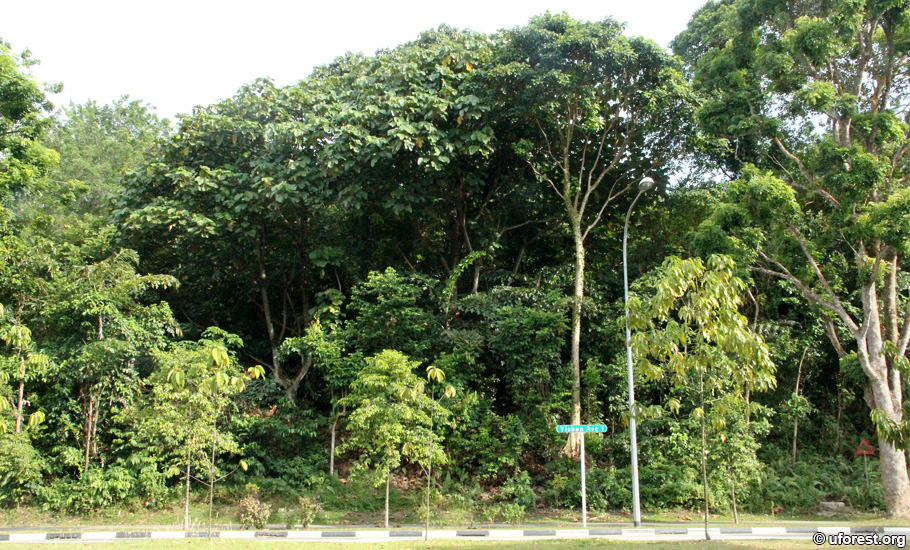
Two large Giant Mahang along Yishun Ave 1, 2019.

A solitary tree.

Another with a wide canopy.
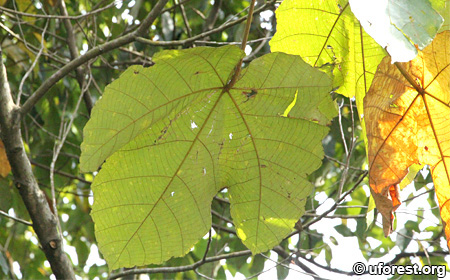
Leaf underside.
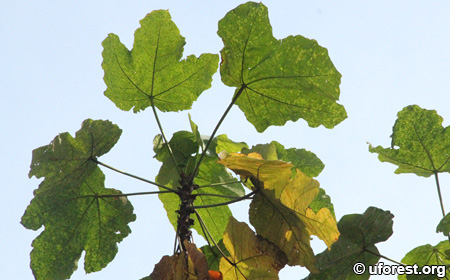
Leaf cluster.
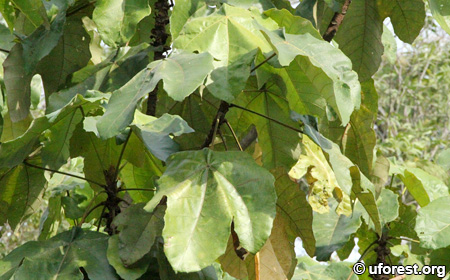
Leaf upper surface.
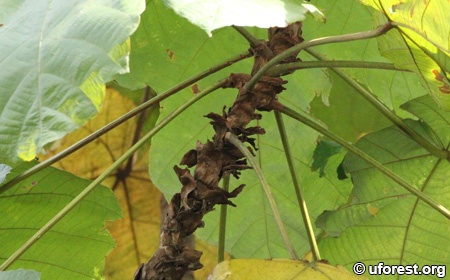
Numerous stipules.
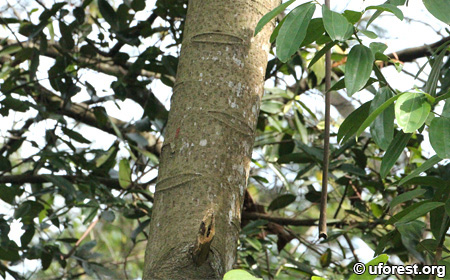
Trunk with leaf scars.
References
Corner EJH. (1997) Wayside Trees of Malaya. Volume 1. 4th edition. The Malaysian Nature Society, Kuala Lumpur. 476 pp.
Aggarwal S (2006) Macaranga gigantea. (PROSEA). Plant Resources of South East Asia. https://uses.plantnet-project.org/en/Category:PROSEA. Accessed on 8-Feb-2019.
Author: Siyang
Posted: 2019-02-09 / Modified: 2020-03-03